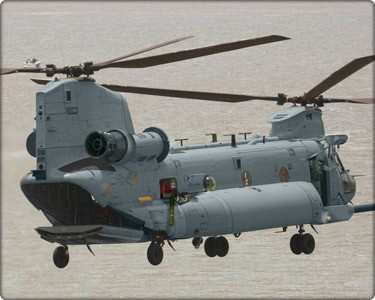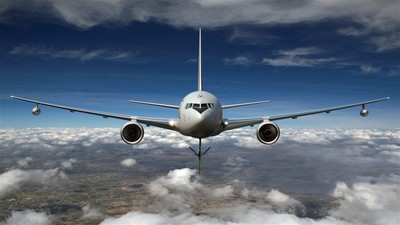Losing Streak Presents Challenge To Aerospace Giant
 Boeing, the world's number two
military contractor, lost another US defense contract bid last
week... adding to a recent, continuing losing streak for the
aerospace giant in the military market.
Boeing, the world's number two
military contractor, lost another US defense contract bid last
week... adding to a recent, continuing losing streak for the
aerospace giant in the military market.
In the latest loss, Lockheed Martin defeated Boeing on a
potential $3.6 billion deal for a new generation of global
positioning satellites for the US Defense Department as reported by
Reuters.
The losing streak is causing many to worry the company is losing
its grip on the traditional military hardware, such as fighter jets
and transport planes, and is being forced to focus on integrating
programs into networks and expanding civil work.
"They're moving from bending metal to connecting systems," said
Richard Aboulafia of Teal Group, a Fairfax, Virginia consultancy to
Reuters. "That's the challenge for aerospace companies, especially
Boeing."
The negative trend can be traced back to 2001 when the
manufacturer lost to Lockheed on the potential $299 Billion F-35
Joint Strike Fighter program.
As reported by ANN, 2008
hasn't been kind to Boeing -- starting with the $35 billion KC-X
aerial refueler program loss to a rival partnership between
Northrop Grumman and European manufacturer EADS.
In March, the company lost a $766 million contract to Lockheed
for development of an electronic radio system for US aircraft,
ships and ground stations. April brought yet another loss
with a $1.2 billion unmanned patrol aircraft contract being awarded
by the US Navy to Northrop Grumman.
On top of everything, Boeing may even lose a contract it won
originally. Won in 2006, a $15 billion contract to build the US Air
Force's new combat search-and-rescue helicopter is now being rerun
after congressional auditors upheld protests from losing bidders
Lockheed and Sikorsky.

Boeing defense chief James Albaugh told Reuters the results of
recent contract awards won't materially affect results. But the
cumulative loss of revenue will make growth difficult.
Based in St. Louis, Boeing's defense unit reported a 2 percent
dip in sales last quarter after fewer aircraft deliveries. In
contrast, Boeing's Seattle-based commercial planes unit posted an 8
percent increase in sales, and most other defense companies posted
substantial gains.
Boeing's two main businesses have roughly been equal in sales in
recent years. Projections for next year place the commercial unit
ahead at up to $38 Billion in revenue due to passenger aircraft
orders, but the top of the defense unit's forecast is only $34.5
billion.
Boeing's Integrated Defense Systems unit, now lacks any major,
growing military aircraft programs. Its 35-year-old F-15 fighter
jet is now limited to foreign sales, production of its F-18 fighter
jets will likely stop in 2015, and its C-17 transport plane appears
to be coming to the end of its line, unless the U.S. Congress steps
in to save it.
Overconfidence and underperformance on a number of existing
government jobs is what some are saying is to blame for the recent
troubles at Boeing. Others say that the situation is not unique to
Boeing and may not indicate a long-term problem at the
manufacturer.
"It's not uncommon that a company will have a dry period where
they lose an inordinate number of contracts," said Paul Nisbet at
aerospace and defense specialists JSA Research.

"Northrop Grumman went through this a couple of years ago and
they came right back. I think you'll see the same thing here," he
said.
The savior may be the US Army $160 Billion Future Combat Systems
project led by Boeing and technology firm SAIC Inc. The
project entails linking 14 major weapons systems and could be
lucrative for Boeing despite some Congressional nibbling at its
funding.
"Once Future Combat Systems gets out of the development phase,
that could be huge," said Nisbet.
 ANN's Daily Aero-Linx (05.06.25)
ANN's Daily Aero-Linx (05.06.25) ANN's Daily Aero-Term (05.06.25): Ultrahigh Frequency (UHF)
ANN's Daily Aero-Term (05.06.25): Ultrahigh Frequency (UHF) ANN FAQ: Q&A 101
ANN FAQ: Q&A 101 Classic Aero-TV: Virtual Reality Painting--PPG Leverages Technology for Training
Classic Aero-TV: Virtual Reality Painting--PPG Leverages Technology for Training Airborne 05.02.25: Joby Crewed Milestone, Diamond Club, Canadian Pilot Insurance
Airborne 05.02.25: Joby Crewed Milestone, Diamond Club, Canadian Pilot Insurance





